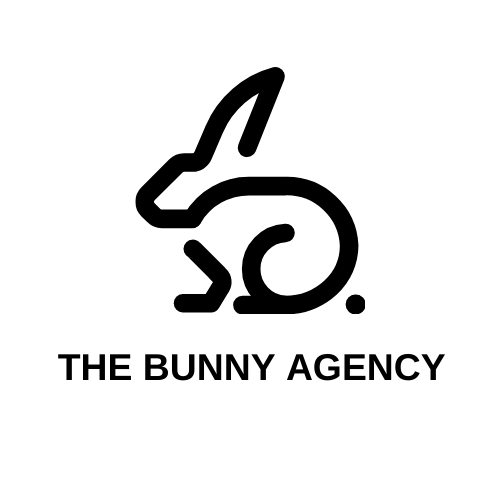As an OnlyFans creator, you’re riding the wave of a digital revolution in content creation and adult entertainment. While the platform offers incredible opportunities for financial success, it also comes with its fair share of challenges – particularly when it comes to taxes. Don’t worry, though! Bunny Agency, the premier OnlyFans management company, is here to guide you through the tax maze and help you keep more of your hard-earned money.
Before we go into the world of taxes, let’s take a moment to appreciate the incredible potential of OnlyFans careers. With the right strategy and support, content creators can transform their passion into a lucrative business. This is where Bunny Agency shines, offering comprehensive management services to help top OnlyFans models maximize their earnings and streamline their operations.
Now, let’s tackle the elephant in the room: taxes. As an OnlyFans creator, understanding your tax obligations is crucial for long-term success. Here’s what you need to know:
Table of Contents
Toggle
1. You’re Self-Employed: Understanding Your Tax Status
When you earn money on OnlyFans, you’re considered self-employed in the eyes of the IRS. This status comes with both benefits and responsibilities:
- You’re responsible for reporting all your income and paying taxes on it.
- You have access to various business deductions that can lower your taxable income.
- You’re required to pay self-employment tax in addition to income tax.
Don’t make the mistake of thinking you can fly under the radar – OnlyFans reports earnings to the IRS, so it’s essential to stay compliant. Failing to report your income can result in hefty penalties and legal issues down the line.
2. Keep Meticulous Records: Your Financial Lifeline
Accurate record-keeping is your best friend when it comes to taxes. Implementing a robust system for tracking all your income and expenses related to your OnlyFans modeling career is crucial. Here’s what you should bedocumenting:
- Earnings from subscriptions
- Tips and gifts from fans
- Income from custom content or pay-per-view messages
- Expenses like equipment, costumes, and props
- Marketing costs
- Home office expenses (if applicable)
- Mileage for business-related travel
Consider using accounting software designed for self-employed individuals to streamline this process. Many of these tools can integrate directly with your bank accounts and credit cards, making it easier to categorize expenses and generate reports come tax time.
3. Self-Employment Tax: The Hidden Tax You Can’t Ignore
As a self-employed individual, you’re responsible for paying self-employment tax, which covers Social Security and Medicare contributions. This is in addition to your regular income tax. Here’s what you need to know:
- The current self-employment tax rate is 15.3% of your net earnings.
- This tax is split into two parts: 12.4% for Social Security and 2.9% for Medicare.
- You can deduct half of your self-employment tax when calculating your adjusted gross income.
While this tax can take a significant bite out of your earnings, remember that it’s contributing to your future Social Security benefits and Medicare coverage.
4. Quarterly Estimated Tax Payments: Stay Ahead of the Game
Unlike traditional employees who have taxes withheld from each paycheck, self-employed individuals need to make quarterly estimated tax payments. This system helps you avoid a large tax bill (and potential penalties) at the end of the year. Here’s how it works:
- You’ll need to estimate your tax liability for the year and divide it into four payments.
- Payments are typically due on April 15, June 15, September 15, and January 15 of the following year.
- You can use Form 1040-ES to calculate and pay your estimated taxes.
Pro tip: Set aside 25-30% of your earnings each month in a separate savings account to ensure you have enough to cover your quarterly tax payments.
5. Deductions: Your Secret Weapon for Tax Savings
One of the perks of being self-employed is the ability to deduct business expenses from your taxable income. For OnlyFans creators, this can include a wide range of costs. Let’s break down some key deductions:
- a) Equipment and Supplies:
- Cameras, lighting equipment, and microphones
- Computers and tablets used for content creation and management
- Props, costumes, and makeup used exclusively for content creation
- b) Home Office:
If you use a portion of your home exclusively for your OnlyFans business, you may be eligible for a home office deduction. You can deduct a percentage of your rent or mortgage interest, utilities, and insurance based on the square footage used for your business.
- c) Software and Subscriptions:
- Editing software like Adobe Creative Suite
- Scheduling and social media management tools
- Accounting software
- Music licensing fees
- d) Marketing and Advertising:
- Costs associated with promoting your OnlyFans page on other platforms
- Professional photoshoots for promotional material
- Website hosting and domain registration fees
- e) Travel Expenses:
If you travel for content creation or to attend industry events, you can deduct:
- Transportation costs (flights, train tickets, etc.)
- Accommodation expenses
- Meals (usually 50% deductible)
- Rental cars and rideshare services
- f) Health Insurance Premiums:
As a self-employed individual, you can often deduct your health insurance premiums, including dental and long-term care coverage.
- g) Professional Development:
Costs associated with improving your skills, such as online courses or workshops related to content creation, marketing, or business management, are typically tax-deductible.
- h) Legal and Professional Fees:
Fees paid to lawyers, accountants, or OnlyFans management services like Bunny Agency are deductible business expenses.
- i) Bank Fees and Payment Processing Costs:
If you have a separate business bank account or credit card for your OnlyFans activities, the associated fees are deductible. This also includes payment processing fees charged by OnlyFans or other platforms you use.
- j) Gifts for Fans:
Small gifts sent to fans as part of your marketing strategy may be tax-deductible, subject to IRS limits (currently $25 per person per year).
Remember, to claim these deductions, you need to keep detailed records and receipts for all expenses.
6. Business Structure: Should You Form an LLC?
As your OnlyFans career grows, you might consider forming a Limited Liability Company (LLC). This business structure can offer both tax benefits and personal asset protection. Here’s what you need to know:
- An LLC can provide a layer of protection between your personal assets and your business liabilities.
- You can choose how your LLC is taxed – either as a sole proprietorship (which is the default for single-member LLCs) or as a corporation.
- Forming an LLC may give your business more credibility with potential partners or sponsors.
However, there are costs associated with forming and maintaining an LLC, including state filing fees and potential annual fees. It’s worth consulting with a tax professional or lawyer to determine if this structure is right for your OnlyFans business.
7. State and Local Taxes: Don’t Forget the Home Front
While federal taxes often get the most attention, don’t overlook your state and local tax obligations. These can vary significantly depending on where you live:
- Some states have no income tax, while others have rates as high as 13%.
- You may be subject to local business taxes or licensing fees.
- If you sell physical products (like merchandise) to fans in your state, you may need to collect and remit sales tax.
Research the requirements in your area or consult with a local tax professional to ensure you’re meeting all your obligations.
8. International Tax Considerations: Going Global
If you have fans from around the world, you might need to consider international tax laws:
- The US has tax treaties with many countries that can affect how your income is taxed.
- You may be able to claim a foreign tax credit if you pay taxes to another country on your OnlyFans earnings.
- Be aware of potential withholding requirements for payments from foreign sources.
This is another area where professional guidance can be invaluable, especially as your international audience grows.
9. Retirement Savings: Planning for the Future
As a self-employed individual, you have access to powerful retirement savings tools that can provide valuable tax benefits:
- SEP IRA: You can contribute up to 25% of your net earnings, with a maximum of $61,000 for 2021.
- Solo 401(k): This option allows for higher contribution limits, especially if you’re under 50.
- Traditional IRA and Roth IRA: These provide additional options for tax-advantaged savings.
Contributions to these accounts can often be deducted from your taxable income, lowering your tax bill while securing your financial future.
10. Stay Informed and Seek Professional Help
Tax laws can change from year to year, and some changes may significantly impact OnlyFans creators. Make it a habit to stay informed about any updates that could affect your tax situation. Consider:
- Following reputable tax news sources
- Attending webinars or workshops on taxes for self-employed individuals
- Joining online communities or forums for OnlyFans creators to share knowledge
Most importantly, don’t hesitate to seek professional help. Working with a tax professional or an OnlyFans management company like Bunny Agency can be a game-changer. Their expertise can help you:
- Optimize your tax strategy
- Identify all eligible deductions
- Ensure compliance with tax laws
- Maximize your earnings while minimizing your tax burden
Remember, the cost of professional tax help is itself a tax-deductible expense!
Mastering the tax aspects of your OnlyFans career is a crucial step in building a sustainable and profitable business. While it may seem daunting at first, with the right knowledge and support, you can navigate these waters with confidence.
By partnering with Bunny Agency, you’re not just getting a management service; you’re gaining a dedicated team committed to your success. They understand the unique challenges and opportunities in the world of OnlyFans modeling and can provide tailored solutions to help you thrive.
So, are you ready to take your OnlyFans career to the next level? Don’t let taxes hold you back from achieving your full potential. With the right strategy and support from Bunny Agency, you can confidently build a thriving OnlyFans business while staying on the right side of the taxman.
Remember, your success on OnlyFans is about more than just creating great content – it’s about building a sustainable business. By understanding and managing your tax obligations effectively, you’re setting yourself up for long-term success in this exciting and dynamic industry.
